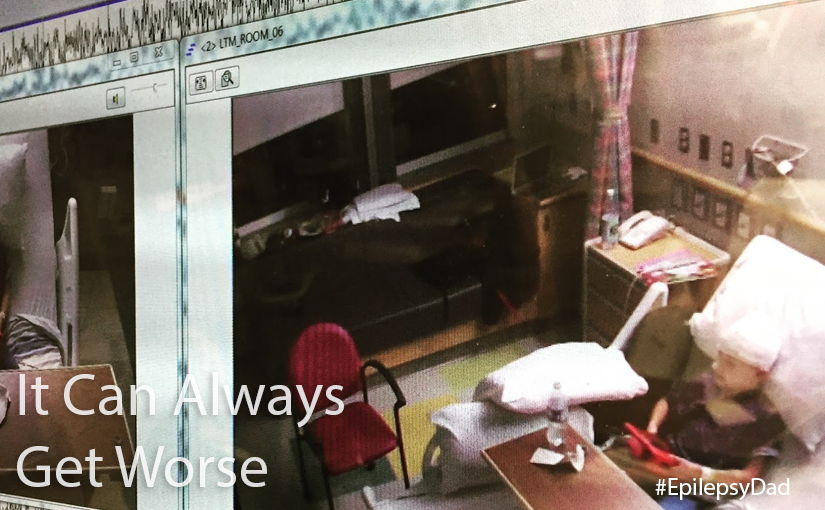We finally got a second opinion. Not because we didn’t think the doctors at our hospital were doing everything they could. But because that’s what responsible parents do.
I wasn’t expecting a miracle. I wasn’t expecting someone to tell us we missed something that would cure my son’s epilepsy. We were looking for another perspective or treatment that we missed. We hoped that someone out there had another case like ours and could provide some insight. We wanted a little more hope. We wanted a little more of something to hold on to.
The hospital sent the report to my wife. That night, she tried to tell me what it said, but I didn’t let it in. I nodded as she spoke the words but I put my guard up and those words bounced off me and fell to the floor. For the rest of the night, I stepped over them as I distracted myself with other things until it was time to go to bed. But I didn’t sleep.
The next day, I started to feel the effects of the night before. Not only the report but how I reacted. How I tried to ignore it to make it less real. How not facing it doesn’t make it go away. And how I left my wife holding that emotional weight by herself.
When I got home from work, I hugged her and apologized for leaving her stranded. I asked her to send me the report, and I read the pages of detailed notes that the doctor had put together. It was a thorough summary of the last three years of our lives. It included confirmation that our doctors are doing the right things and that there wasn’t anything we missed. Then, towards the end, I saw what I didn’t want to see the night before.
What should we expect in the short and long term? Is there any other information you feel would be helpful for us to know?
I do worry that his clinical picture has raised suspicion for a myoclonic epilepsy that may be progressive, in which case, continued difficulty in treatment and learning decline can be seen.
It wasn’t the first time we heard that. We’re three years in without seizure freedom, and it’s feeling like a more elusive goal every day. Our doctors alluded to the possibility but kept us focused on stabilizing what we can now. The near-term goals were a welcome distraction from the long-term possibilities. But I also don’t think about it getting worse because I can’t think of anything worse than what is happening to him now.
That night I laid next to my son as I put him to bed. I told him that I loved him. That I would always be there. That I was sorry that his life was so hard. I was trying to communicate my feelings to him. But he’s eight and doesn’t understand the words we use to express those very big feelings.
Somedays, neither do I.
But I feel the need to get them out and hope that he will someday be able to understand. I worry that there will be a window between now and if things get worse where he is able to grasp the meaning in my words. I don’t want to miss that window. Even if it only cracks a little, I want to get something through. Because if things do get worse, I need to know that he will have something to hold on to.
